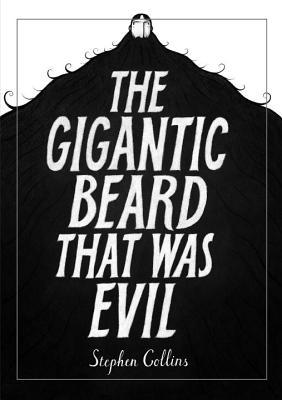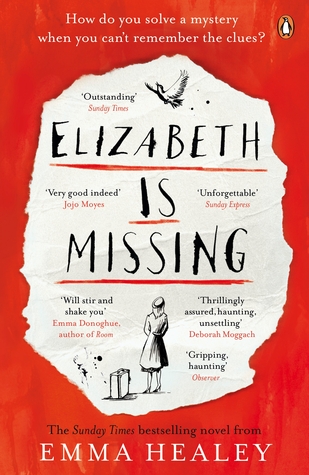 We recently had a small sprinkling of the white stuff here in the UK. Nothing to compare with the snowstorm that ravaged the east coast of the USA to be sure, but enough to put me in a wintery mood and make me hunt out a ‘snowy’ book. Given that it has winter in the title, I was hoping for good things from ‘Wolf Winter’ - which has been warming my actual Shelf of Unread Books since early last year – and it didn’t disappoint, providing a perfect slow burn, curl-up-by-the-fire-with-a-mug-of-tea kind of read.
We recently had a small sprinkling of the white stuff here in the UK. Nothing to compare with the snowstorm that ravaged the east coast of the USA to be sure, but enough to put me in a wintery mood and make me hunt out a ‘snowy’ book. Given that it has winter in the title, I was hoping for good things from ‘Wolf Winter’ - which has been warming my actual Shelf of Unread Books since early last year – and it didn’t disappoint, providing a perfect slow burn, curl-up-by-the-fire-with-a-mug-of-tea kind of read.
Set in 1717, the novel follows a family of settlers – Paavo, Maija and their two daughters Frederika and Dorotea – as they survive their first winter on Blackåsen Mountain in Swedish Lapland. A day’s journey from the nearest town, the inhabitants of the six homesteads on Blackåsen have learnt to ignore their secrets. But when a man is found dead not half an hour’s walk from Paavo and Maija’s homestead, Maija cannot believe that a wolf is the cause. For what wild animal cuts a body so clean? As the chill of winter cuts evermore harshly and Maija digs ever deeper into the lives of those around her, secrets are uncovered, old superstitions are aroused and the darkness of Blackåsen begins to take hold of everyone.
As I said at the beginning of this review, this is a slow burn book. Ekbäck throws you right into the story and doesn’t take a lot of time to explain the setting, time and place or characters. Instead the reader has to let the novel slowly unravel to reveal these things, which can be a little disconcerting at first as the beliefs and social structure of Swedish Lapland at this period are quite different to our own. The political situation in Sweden at the time also becomes very important as the book progresses but, again, the reader is largely left to infer this and to develop an understanding of it as the plot unravels. After a while I really didn’t mind this and actually felt it added to the way the story was told, but it did make the book somewhat difficult to get into at first and I imagine it might put some readers off. At the end of my copy of the book (the Hodder & Stoughton hardback, published 2015), there was a really interesting author’s note and author interview which explained more about the setting of the novel and the historical context so this filled in any blanks I still had remaining and was a nice piece of additional reading.
Once you get past the initial confusion however, the novel develops into a multi-layered, suspenseful literary thriller which is dark, eerie and skillfully written. Although the pace remains relatively slow, so much is happening beneath the surface that every conversation that the characters have and every action that they take becomes imbued with meaning. It is this gradual enveloping of the reader, at first disconcerting but later so immersing, that gives real strength to the writing. Seemingly incidental observations and remarks become all-important later on and, as a reader, this can really knock the wind out of you as you realise that both you and the characters have passed up on an important clue.
The characters themselves also operate in a complex and multi-layered way. There are no one-dimensional stereotypes here, with each of the three narrators (Maija, her daughter Frederika and the local priest Olaus) having their own individual traits and flaws and their own world views. I liked Olaus the best, although at first he seems stuffy and judgmental; and really enjoyed following him as he grew into greater self-knowledge and awareness of the world around him. He goes from being a passive observer to an active agent in the story and, possibly, in the future of the country and I’d have loved to know what he was going to do next at the end of the novel! Maija is a very forthright character but, for someone so determined, she is also running away from an important part of herself and her past. This made her a frustrating person to be in the head of sometimes because, as reader, you can see what she is trying to ignore but are unable to make her act on it. That said, Ekbäck does an excellent job of keeping you on her side by gradually revealing what has made her the way she is. In contrast, Frederika is probably the character who changes the most as the book progresses. At first she is very much a child, unsure of herself and her place in the world but she really becomes a force in her own right and is the character who becomes most connected to the shamanistic spirituality that has a hold on the mountain, which was a really interesting strand of the book for me. The clash between her developing personality and that of her mother Maija was also extremely well-observed.
Before I wrap this review up, I should also mention Ekbäck’s writing itself which is wonderfully poetic and very visual. You get a real sense of the mountain and the landscape and the writing imbues the setting with a sense of underlying magic that adds to the creeping realization that all is not well with this world. It’s very skillfully done.
All in all, this was a really good read for me and I enjoyed it immensely. It’s definitely a book that requires considered reading and you do need to invest some time and effort to really get the most out of it but I certainly think that is worth doing. The first 50 pages or so are admittedly quite slow but, once you’ve got a grasp of the characters and their situations, the novel really takes hold and pulls you further and further into the lives of this very insular community and the secrets held within. Similar in tone to Eowyn Ivey’s ‘The Snow Child’ (another great winter book if you haven’t already read it), I have also heard ‘Wolf Winter’ mentioned in the same breath as Hannah Kent’s ‘Burial Rites’ (which has also been warming my TBR shelf for a while) so would imagine it will appeal to fans of both as well as to anyone who likes their Scandi crime to come with a dash of the poetic.
'Wolf Winter' is published by Hodder & Stoughton and is available now in paperback from all good bookshops, online retailers and libraries!





